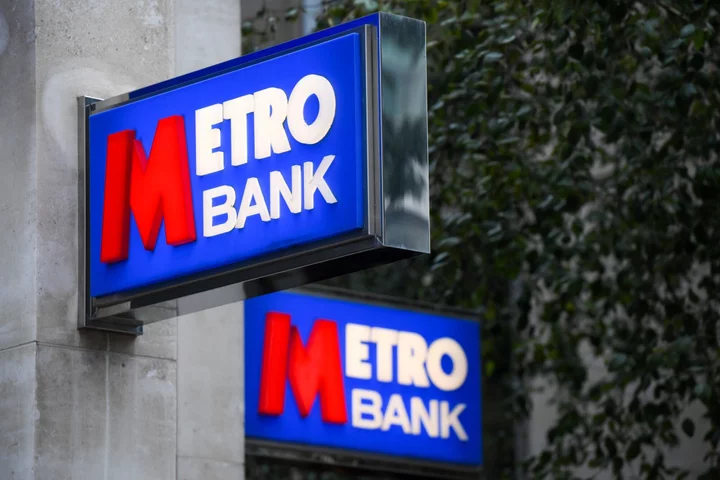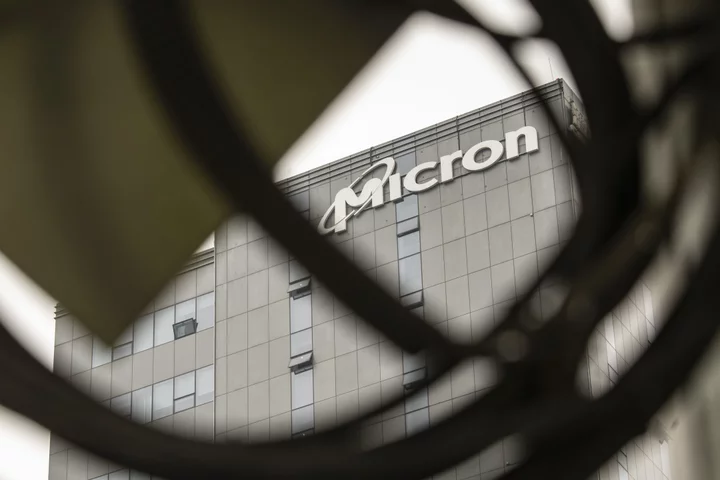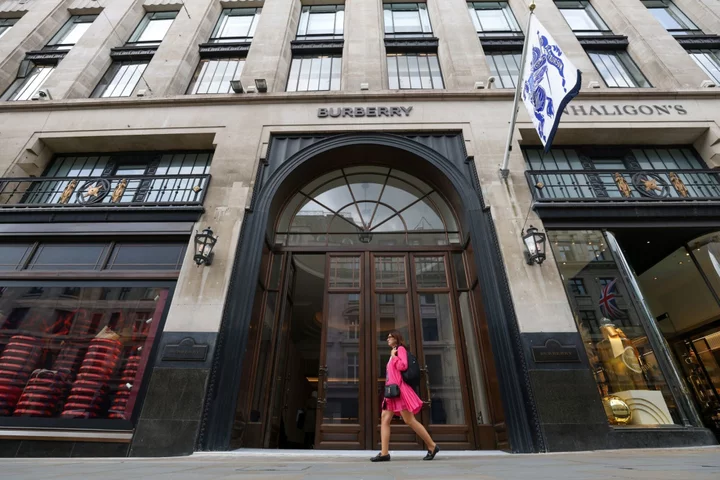Metro Bank Holdings Plc has hired Morgan Stanley to explore a potential capital raise after it faced pushback from regulators on a plan that would allow it to reduce the capital its required to hold.
The UK lender is weighing several other options as it looks to shore up its balance sheet, including a securitization as well as asset and loan sales, according to people familiar with the matter. The company is no longer working with Jefferies Financial Group Inc., one of its corporate brokers, some of the people said, asking not to be identified discussing private matters.
Metro Bank said in September it was looking at “how best to optimize its capital resources” after the Prudential Regulation Authority informed the lender it had to do more work before it was allowed to use its own internal risk models to help calculate how much capital it’s required to set aside for mortgage loans.
The lender’s shares were down 27% at 8:11 a.m. in London.
A spokesperson for Metro Bank said the lender works “with a range of advisers and will not comment on individual relationships.” Spokespeople for Morgan Stanley and Jefferies declined to comment.
“We suspect that some form of “friends and family” transaction targeted at existing equity / debt investors would be the most likely prospect,” Edward Firth, an analyst at KBW, said in a note.
Metro Bank, which was co-founded by Vernon Hill, opened its doors in 2010 and is one of the most prominent British challenger banks that emerged to take on incumbents such as Barclays Plc and Lloyds Banking Group Plc. While others focused on expanding their online banking offerings, the firm has become known for building a branch network, including in expensive locations like the King’s Road in Chelsea.
The bank, which had £22 billion ($26.6 billion) of total assets at the end of June, currently has a market value of about £87 million, compared with £3.2 billion at the end of 2017.
The company is now in talks with investors about raising £250 million in equity funding and £350 million in debt, the Financial Times reported, citing people with knowledge of the plan.
Regulatory Capital
The lender has spent years seeking regulators’ approval to use an approach — known as AIRB, or advanced internal rating-based method — to calculate its regulatory capital requirements. The approach could lead to a reduction in risk-weighted assets, which, in turn, could lower the firm’s capital requirements.
“The board retains conviction in the merits of Metro Bank’s customer-centric model and strongly believes that there is a significant opportunity set that the company can capitalize on, subject to renewed balance sheet strength,” Metro Bank said in the September statement.
The lender’s shares have tumbled from their level before that Sept. 12 statement, as it warned it was not likely to secure approval to use its internal models this year and that there is “no certainty” it might be obtained after that.
It’s the second time in recent years that issues tied to the way Metro evaluates its risk-weighted assets has led the company to consider raising capital. In 2019, the company said it had been mistakenly applying a risk weighting that was too low on some of its mortgages, resulting in the need to put more capital behind its existing positions.
Soon after, regulators announced they were probing how the firm misclassified the assets. The moves caused a monthslong selloff in Metro Bank’s shares. Ultimately, the company raised £375 million in 2019 through a new share placement to repair its finances.
The PRA eventually fined Metro Bank £5.38 million for the errors, while the Financial Conduct Authority hit it with £10 million in penalties.
Debt Instruments
Metro Bank, which is mainly funded by deposits from consumers and small businesses, reported an underlying profit before tax of £16.1 million in the six months to June 30. That reflected improved operating margins, the bank said in a statement.
The UK lender has two outstanding debt instruments. One is a £350 million senior bail-in bond and the other a £250 million junior tier 2 note. The bail-in bond matures in 2025 and the tier 2 note in 2028.
Fitch Ratings placed Metro Bank’s rating on “watch negative” on Wednesday, saying the risks surrounding the firm’s ability to refinance maturing debt have increased.
“The ratings also reflect the group’s weak profitability, healthy asset quality, and a funding and liquidity profile that we believe could come under pressure,” the ratings agency said in a statement.
Willett Advisors LLC, the investment arm for the personal and philanthropic assets of Michael Bloomberg, founder and majority owner of Bloomberg News parent Bloomberg LP, held shares in Metro Bank as of November 2021, according to a regulatory filing.
--With assistance from Harry Wilson and Tasos Vossos.
(Adds share price to fourth paragraph, analyst reaction in sixth paragraph.)
Author: Jan-Henrik Förster, Ruth David and Katherine Griffiths









